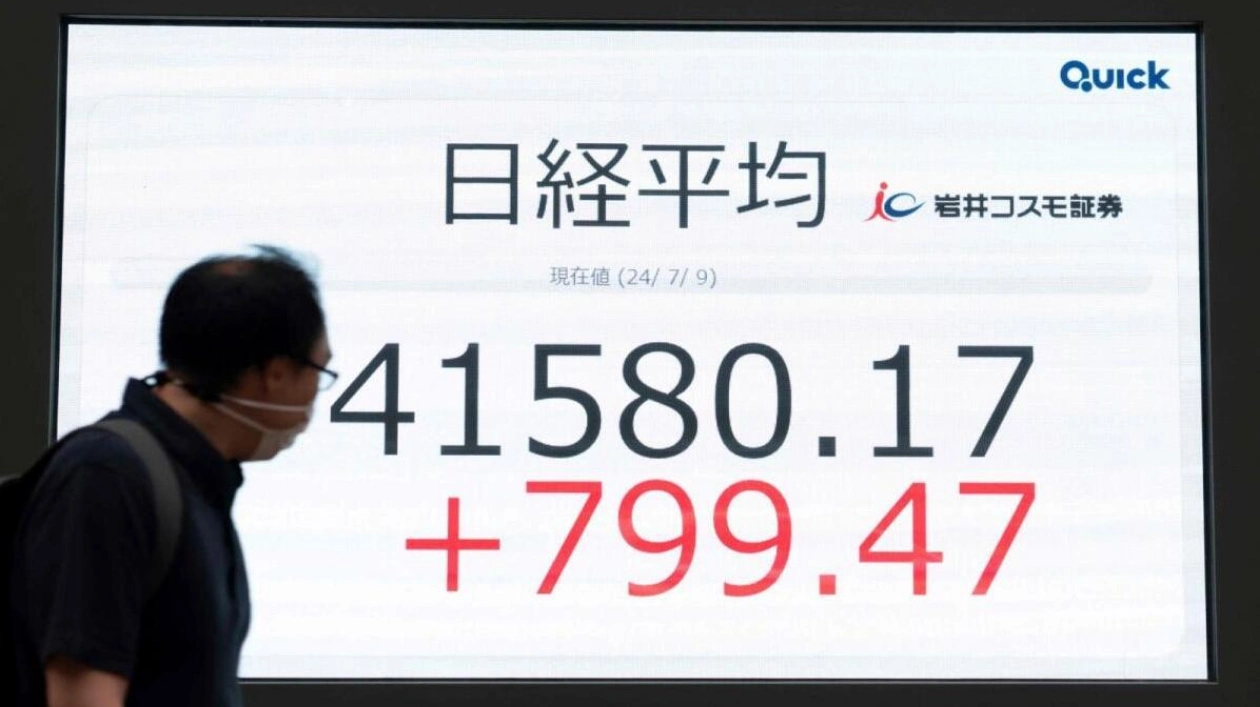Asian markets showed mixed results on Wednesday, following new highs on Wall Street and comments from the Fed chief suggesting a potential US interest rate cut later this year, though without specifying a clear timeline. Meanwhile, Europe's major stock markets experienced declines on Tuesday due to political uncertainties in France, while the S&P 500 and Nasdaq in the United States reached record levels. These milestones occurred after Federal Reserve Chair Jerome Powell noted "modest" advancements in the fight against inflation. Although his Senate testimony did not specify when rate cuts might occur, analysts anticipate the first cut in September and another before the year ends.
Fed Chair Powell's recent testimony exhibited a somewhat dovish tone, acknowledging 'two-sided risks' faced by the Fed. Alvin Tan from RBC Capital Markets noted that Powell indicated a shift towards an easing bias due to the 'significantly' cooling labor market, yet he refrained from providing a clear schedule for rate cuts. Despite this, the market has already factored in nearly two full Fed rate cuts for this year, and Powell's remarks did not significantly alter these expectations.
Powell is scheduled to testify before a House committee on Wednesday, and investors will closely watch US consumer inflation data due Thursday for additional insights into whether price increases continue to ease as anticipated. Stephen Innes from SPI Asset Management highlighted that Thursday's CPI data could be pivotal in determining if the likelihood of a September rate cut rises from the current 70 percent. In Asia, Hong Kong stocks climbed over one percent in morning trading, with Alibaba Group significantly contributing to these gains, according to Bloomberg. Chinese consumer prices increased by 0.2 percent year-on-year in June, according to official data, falling short of analyst forecasts and declining from May's 0.3 percent rise.
Zhiwei Zhang from Pinpoint Asset Management noted that with weak domestic demand, fiscal spending, and a high real interest rate, the risk of deflation in China persists. He emphasized that China relies heavily on exports as a growth driver in the first half of this year and will require a rebound in domestic demand for sustained economic growth. If the Fed indeed cuts rates in September, China's central bank might also consider a rate cut. Tokyo, Wellington, Singapore, Jakarta, and Kuala Lumpur saw stock increases, while Shanghai and Taipei remained largely unchanged, and Sydney, Seoul, and Manila experienced declines.






